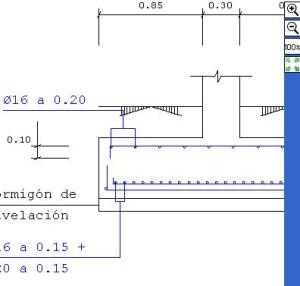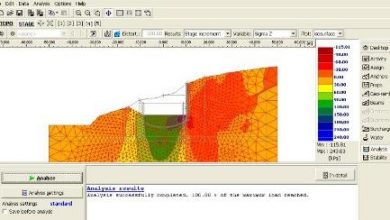Competences that the Civil Engineer must acquire from the construction master
When analyzing how to deal with the development of this topic, my first week as a civil engineer came to mind immediately; After the graduation ceremony I decided to travel and visit my grandparents with the idea of enjoying a few days of tranquility. The truth was that in one day, I received a lesson that after many years, I still do not forget.
My grandfather was a bricklayer and master builder with many years of experience, the day after I arrived he invited me to accompany him to a work that he was starting and said:
"Do not say you're an engineer, and ask everything you want to know"
That day I learned about topics that the university classrooms did not teach me, for example, how to interact with the construction staff (engineer-construction master-masons and workers relationship), organization of the day's work, reception and control of materials and tools, among many other aspects. I also learned facets of the work of the surveyor and the bricklayer of the work, who openly answered all the questions I asked them. All this teaching I was able to obtain thanks to the fact that they thought I was a student and for that reason they were enthusiastic in being able to help me.

In short, I knew that each day that I spent in a work, it would be a day of learning, as long as I left aside the arrogance of my engineering degree and knew how to earn the respect and collaboration of the master builder.
Delving directly into the subject of the competencies that the Civil Engineer must acquire from the master builder, we must first clarify what we mean by "Competencies", which are nothing more than: "those knowledge, abilities and skills that a person has to fulfill efficiently determined task, and are the characteristics that enable it in a certain field ”.
We should also know that the master builder "is in charge of supervising the work carried out by the other employees during the execution of the construction, from masonry to finishing work", and his main functions can be reviewed at the following link: http://www.arcus-global.com/wp/funciones-de-un-maestro-de-obra-en-la-construccion.
Below we will see the main competences of the civil engineer and especially those where the practical experience of the master builder, acquired over time, would help us cultivate, improve and strengthen them in our development as a professional dedicated to construction.
Basic knowledge: are the main aspects that the civil engineer must know before pursuing his career and are those acquired during his academic training. We must clarify that some of them are improved with experience.
- Knowledge of the materials used in buildings: although it is true that in the classrooms teach us about this subject, there are many aspects that the construction master knows best, such as something very simple, quality of a cement block just by looking at it and touch him.
- Knowledge of soil types: Surely having seen many excavations allows the master builder, for example, to know from experience the quality of the soil as a foundation for a foundation.
- Knowledge on how to optimize the use of materials: here the teacher's experience will help not only how to optimize them, but also how to store them, what are the different qualities and qualities of the materials that arrive at the work, which is the most recommended for certain work , etc.
- Knowledge of the machinery used in construction projects: here the engineer will surely learn the jargon that workers use to identify their different tools and equipment, but also know how to maintain and repair the equipment used in a construction. Winch, retro, jumbo, pick, shovel, drill, etc., will be familiar names and not others, since they change depending on the country and province where a work is executed.

Abilities: The civil engineer must possess skills that allow him to carry out his work efficiently, and unlike the knowledge they are acquired only in the labor field.
- Ability to work in a team and communicate orders efficiently: just by observing a good construction teacher, the engineer can learn how to work as a team, how to give instructions and how to reward and / or reprimand a worker.
- Ability to delegate functions and plan the construction works: even when the planning of the works is a function and direct responsibility of the construction engineer, he must have enough emotional intelligence to discuss and analyze what he has planned with the construction master, and You will surely find new ideas on how daily activities should be carried out.
- Ability to determine the time required for each activity: this skill is not only learned through experience, but also we must know the workers, their qualifications, their performance and their capabilities; since they are primordial aspects that indicate the performance to execute each work; therefore, the first one that should be consulted is the construction master.
- Ability to solve the inconveniences that arise in a construction: in this point the experience counts and surely a good master of work must have enough experience in this regard, since he must have suffered, lived and solved the multiple problems that originate in any work.
Abilities: They are the result of knowledge and skills since he started his career and he managed to consolidate a civil engineer thanks to his experience in different projects.
- Leading teams formed by technicians and workers: this means having "leadership". Engineers let the leader of the workers of the work be the master of the work, reinforce each time they can this aspect; lead your technical team and earn your own leadership with your attitude, skills and a respectful treatment to all the staff.
- Determine the resources required for each activity: here the experience and detailed knowledge of the construction methods are essential to determine what amount of materials, personnel and equipment are necessary to comply with certain activity. For example, who in the work can better know the amount of materials, number of staff and what equipment we need to perform the emptying of concrete from a floor slab, the answer is only one "the construction master"; although over time the engineer will be able to use it with greater technical precision.
Undoubtedly there are technical competences that a civil engineer must possess, which we do not indicate in the aforementioned ones, since they are those that are learned in the university or acquired through additional studies; as for example the management of a design program, or to be able to use a unit pricing and budgeting application. All these skills mentioned and the techniques are currently summarized in 7 basic aspects that are incorporated into the profile that an engineer must have to achieve professional success, which are:
- Proactivity and capacity for self-learning,
- Social skills,
- Executive skills,
- Management of the environment
- Innovation.
You can go deeper into these aspects in the following link: https://mba.americaeconomia.com/articulos/reportajes/7-habilidades-que-debe-tener-un-ingeniero-para-alcanzar-el-exito-profesional
In conclusion, we must affirm that the civil engineer who begins his professional activity in a construction, either as a resident or an inspector, has the great opportunity to acquire and reinforce the main competencies that will help him to form his profile as a successful professional. To do this, he must maintain an attitude of humility and know that at the university he has been trained in technical areas, but that his work experience, well used, will finish educating him. You must also recognize that other professionals with more experience and knowledge are working on the work, and among them it is the master builder who can teach you the most.






